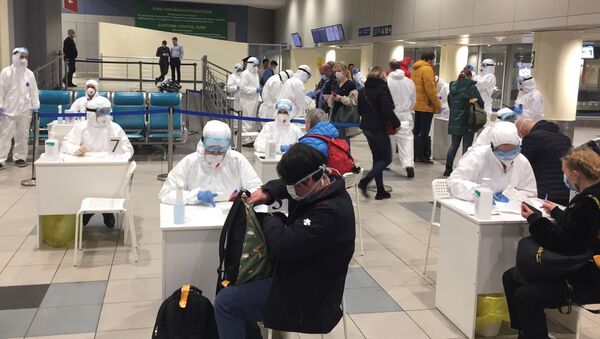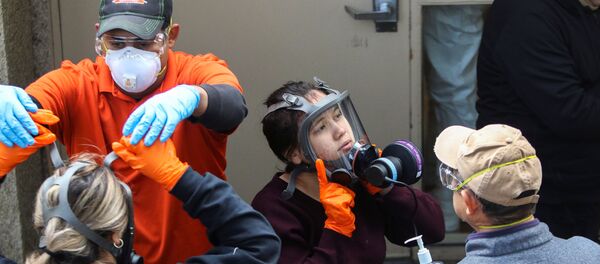Alexander Lukashev, director of the Martsinovsky Institute of Medical Parasitology, Tropical & Vector-borne Diseases at Sechenov First Moscow State Medical University shares his view on the obstacles that impede the timely creation of an efficient vaccine against the Wuhan coronavirus.
Sputnik: Is there any possibility that the coronavirus can survive in open space? If so, what does it change?
Alexander Lukashev: Coronavirus can be preserved on surfaces for a short time, up to at least 24 hours, maybe few days under certain conditions, but not more.
And it does not technically survive, it is preserved because it can not replicate itself outside of a human organism.
Sputnik: China has only managed to turn the tide of the epidemic by introducing tough measures. In your view, what is the key measure needed to “stop" the epidemic?
Alexander Lukashev: Of course, China was successful in stopping the outbreak, but I doubt that other countries would be eager to implement such strict preventive measures.
The key measure for stopping the outbreak is the separation of people, isolation of sick patients and preventing potential transmission chains.
But it's not possible without a huge impact on social life and the economy, so I think only a very few other countries would be able to fully replicate these measures and control the outbreak.
Sputnik: Human coronaviruses were first identified in the 1960s. The first epidemic broke out in 2012, mainly in the Middle East, and reached Europe. What has been the main obstacle to developing a vaccine over the years?
Alexander Lukashev: The first outbreak actually happened in 2002, it was the outbreak of SARS coronavirus.
Since then there have been efforts to create a vaccine. The main obstacle is that in coronaviruses there is a phenomenon of antibody-dependent enhancement, which means that improper or low quantity antibodies can actually enhance the infection instead of preventing it.
This phenomenon is very difficult to replicate in animal models, therefore, for other viruses, it is sufficient to induce antibody response to make a vaccine, and it is easy to do animal control of vaccine efficacy and safety.
In case of coronaviruses, animal models might not precisely replicate this antibody-dependent enhancement, and there will always be a risk that it occurs in humans. So, caution should be expressed in adopting coronavirus vaccines.
And before they are tested for their safety, we need to establish animal models of COVID-19 infection, then to show that these models properly replicate antibody response and potential antibody-dependent enhancement, and only then we can begin testing prospective vaccines in these models.
Another obstacle in the production of vaccines is that coronavirus replicates mostly in mucosal cells, and they are not easily reached by antibodies present in the serum.
Efficient control of coronavirus infection requires specific mucosal antibody response, which may be not elicited by some prototype vaccines.
Sputnik: Israeli scientists say they could create a vaccine as soon as within 90 days. How realistic is such a scenario? Will the vaccine be relevant for the next possible outbreak or in the event of a potential mutation of the virus?
Alexander Lukashev: It is pretty easy to make a prototype of a vaccine and it is indeed possible to do it in three months or even less.
But so far, we do not even have models to prove the efficacy and safety of such vaccines.
A lot of institutions and companies now produce vaccine prototypes, but I do not foresee the implementation of these vaccines into human use in the nearest year.


